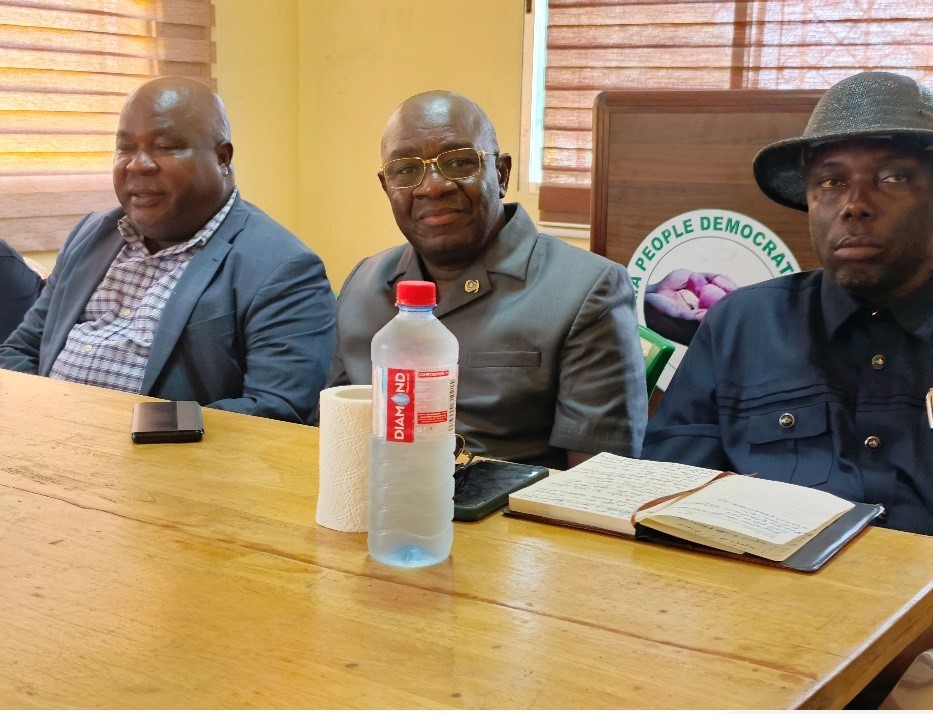The Liberian political landscape is embroiled in a power struggle centered around the speakership of the House of Representatives, prompting calls for presidential intervention. Three opposition parties, the Liberia People’s Democratic Party (LPDP), the National Patriotic Party (NPP), and the People’s Unification Party (PUP), have publicly urged President Joseph Boakai to take decisive action to resolve the ongoing impasse. This call comes despite a Supreme Court ruling, the details of which are not explicitly stated, that seemingly aimed to settle the dispute. The parties’ concern stems from the persistent instability within the legislature and the potential for escalating tensions to threaten the nation’s fragile peace. They emphasized the weariness of the Liberian populace towards conflict, warning those who might incite unrest that their actions will be met with resistance. The core message is a plea for reconciliation and stability, directed at both the President and those contributing to the legislative deadlock.
At the heart of the controversy is the contested speakership, with the opposition parties advocating for President Boakai to recognize and work with Speaker J. Fonati Koffa. The statement released by the LPDP, NPP, and PUP stressed the urgency of presidential leadership in navigating the crisis and ensuring adherence to the Supreme Court’s ruling. They believe that President Boakai’s intervention is crucial to restoring order and functionality within the House of Representatives. The parties’ joint statement, read by LPDP Secretary-General L. Moses Kiyean Kwehai, underscored the need for national reconciliation and stability. The NPP, notably associated with former Vice President Jewel Howard Taylor, further emphasized the importance of resolving the legislative crisis to safeguard the nation’s peace and progress. Their call for reconciliation reflects a broader concern for the potential consequences of prolonged political instability.
The opposition parties’ appeal for presidential action highlights the gravity of the situation and the perceived risk of escalating conflict. Their strong condemnation of threats of chaos, coupled with their call for President Boakai’s direct involvement, underscores the urgency they attach to resolving the legislative stalemate. They warn against any actions that could destabilize the country, emphasizing that those who promote instability will be met with resistance. This stern warning reflects the deep-seated desire for peace and stability within Liberia, and a determination to protect the hard-won progress made since the end of the country’s civil conflicts.
Adding to the complexity of the situation is the political realignment of the NPP and LPDP, both formerly associated with the ruling Coalition for Democratic Change (CDC). Their break from the CDC and subsequent alignment with opposition forces adds another layer to the political dynamics surrounding the House leadership dispute. This shift in allegiances may further contribute to the tension within the legislature and the overall political climate. The fact that these formerly ruling party members are now calling on the current president from a different party to resolve the crisis indicates the depth of the division and the potential for further political realignments.
The widespread condemnation of threats to national stability extends beyond these three parties. Over twenty opposition groups, along with the ruling Unity Party, have voiced their concerns and called for calm. This broad consensus reflects a shared commitment to maintaining peace and order, even amidst political disagreements. The collective call for stability underlines the importance of resolving the legislative impasse through peaceful means, rather than resorting to actions that could escalate tensions and potentially lead to violence. The widespread support for a peaceful resolution further underscores the fragile nature of peace in post-conflict Liberia.
The situation in Liberia’s House of Representatives presents a significant challenge to the country’s political stability. The call for President Boakai to intervene, backed by a broad coalition of political parties, highlights the urgent need for a resolution to the speakership impasse. The emphasis on reconciliation and the condemnation of threats to peace reflect a collective desire to avoid a return to conflict and to preserve the gains made in consolidating peace and democracy in Liberia. The political realignments and the involvement of the Supreme Court further complicate the situation, adding layers of complexity to the ongoing struggle for political power. The ongoing developments warrant close attention as they could have far-reaching implications for the future of Liberia’s political landscape and the stability of the nation.


